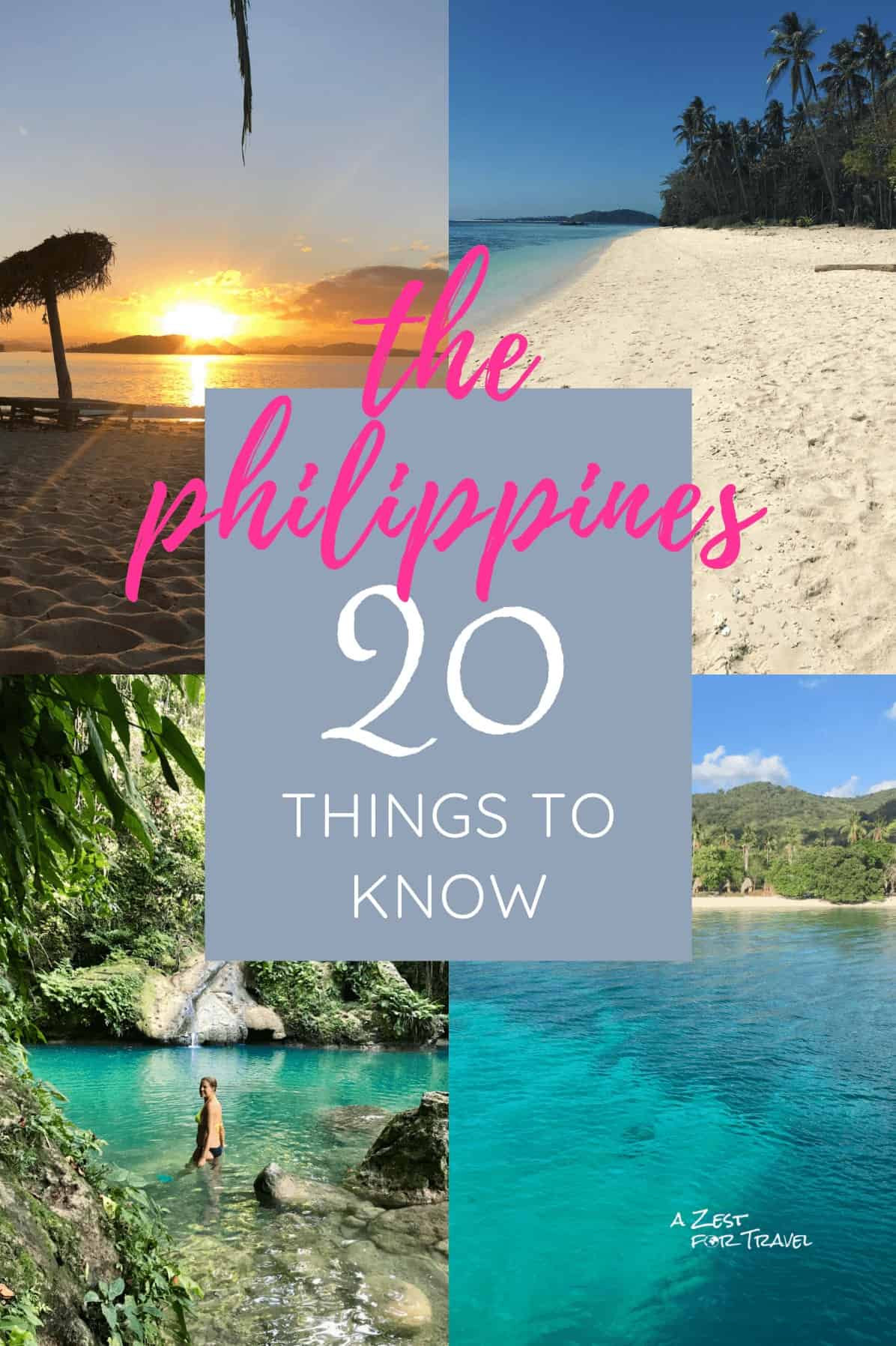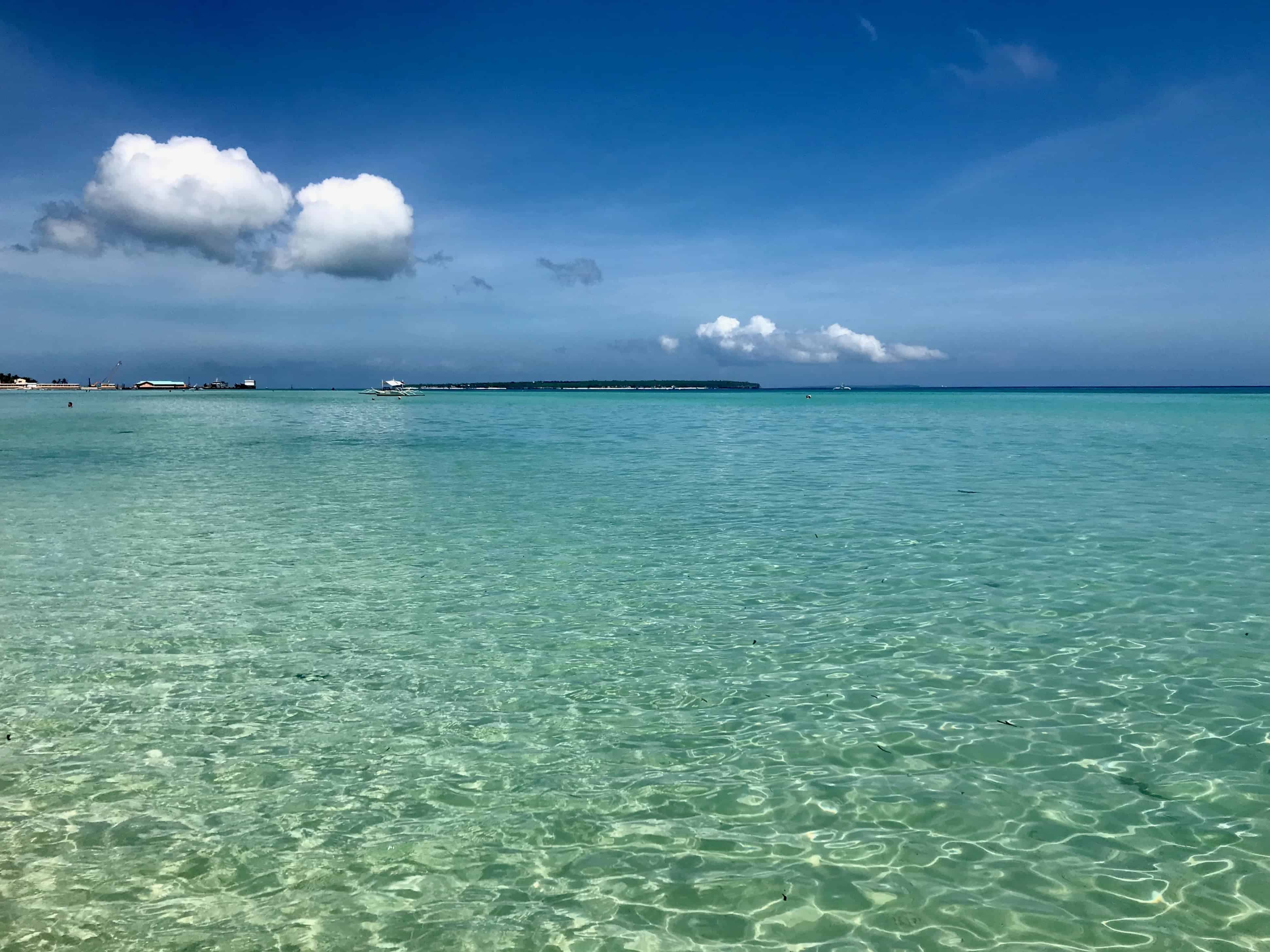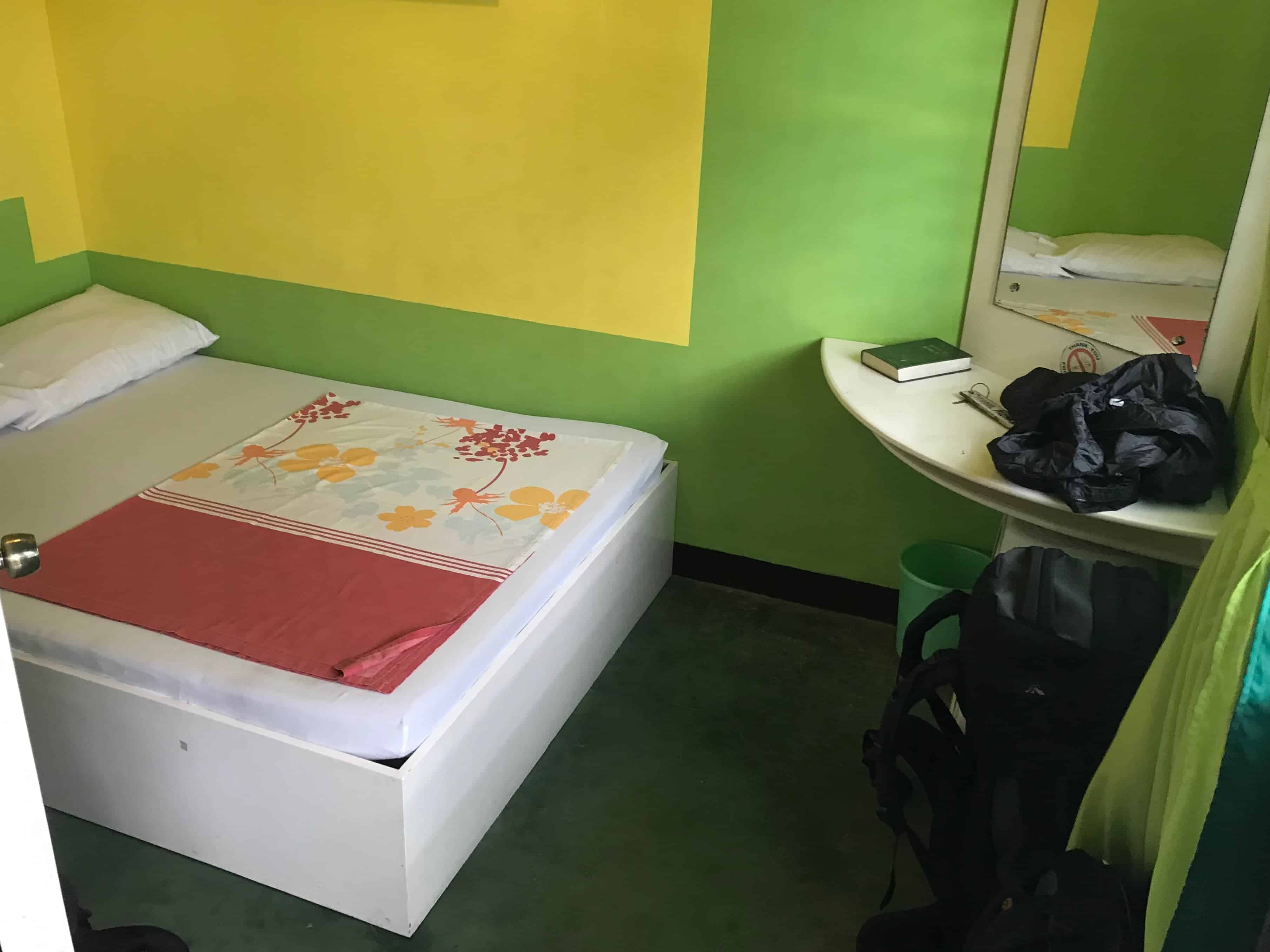Before going to the Philippines, I’d read so many blogs about what an amazing country this is. I thought I’d done some pretty decent research, but in the end, the Philippines still surprised me. Unfortunately, not always in a good way….
While it was undoubtedly beautiful in many ways, there were definitely a few things I wish I’d known before going to the Philippines, which no amount of reading seemed to be able to prepare me for.
With that in mind, I wanted to share some of my insights with you, so that you can head to the Philippines slightly more prepared than I was!
Have you been to the Philippines? Is there anything else that surprised you?
I’d love for you to tell me about it in the comments below.

PS – This post may contain affiliate links: That means that if you purchase through my link, I will receive a small commission at no additional cost to you. Of course, I only recommend products/services that I have used and believe are great! Please read my disclosure for more info.
Generally…
- The Philippines is way more touristy than I had expected! Before we went, I genuinely thought the Philippines was still a bit more of an “off the beaten track” destination. This is definitely not the case
- Some areas are more overrun by tourists than others but we found it near impossible to go anywhere without seeing crowds of other foreigners around
- Filipino people speak excellent English. I was surprised to learn that the Philippines has the largest English speaking population after the US and England! This means it’s super easy to get around, ask for help and read signs

Money Stuff…
- The Philippines is a cash society. In our month there, we were never able to pay with card anywhere
- Except for online bookings for accommodation, but even then, that wasn’t always the case
- It is near impossible to get money out from an ATM without charges
- In our experience, every ATM (other than HSBC apparently, although we never found an HSBC ATM so I can’t confirm this) charges 250 pesos for withdrawals
- Usually, there is also a 10,000 peso withdrawal limit meaning you’re not able to get out a larger sum to try and balance out the access charge…
- The exception is BPI, which allowed us to withdraw 15,000 pesos. Though still with the 250 peso fee
- It may be worth considering exchanging money before going to the Philippines instead
- The Philippines seemed quite a bit more expensive in general than other SE Asian countries we have visited so far
- Despite the higher prices, accommodation options were generally rather basic and comparatively poor value for money (compared to other SE Asian countries we’ve visited)
- Beds are usually thin foam mattresses on slat beds. They are not the most comfortable!

Attractions & Fees…
- Most beaches, waterfalls and other natural attractions charge an entry fee. These vary from around 20-100 pesos per person
- Usually, you’ll also have to pay extra for parking, so bear that in mind if you’re renting a scooter
- That’s not to say it’s not worth it – the waterfalls in particular were simply spectacular! Our time around Moalboal was one of my favourites during our time in the Philippines
- Also, you’ll get to see some incredible sunsets in the Philippines!!! I mean, those colours! Wow…

- There seems to be a lot of other “ad hoc” charges too. Port taxes, Terminal fees, Ecological fees, Environmental taxes… Every little adds up meaning your trip to the Philippines might not be as cheap as you were first anticipating
- If you go island hopping, be aware that these fees and taxes are often not included in your tour fee. This could mean anything from an additional 50 pesos in total (in Port Barton), to an additional 50-200 pesos per site (in Coron)

Transport…
- On Cebu, there is a great bus system all the way around the island
- You pay for your bus ticket on the bus, not in advance. A bus conductor will come around selling tickets once the bus is underway
- There are air-con and non-air-con busses. The ticket price is slightly cheaper for the non-air-con bus
- The non-air-con busses all seem to have a 3-2 seating configuration meaning the seats are narrow and if it is busy, it will get HOT! But, we didn’t find it as terrible as we were expecting. All the windows are left open creating a more or less constant breeze (unless you’re sitting in traffic!)
- The air-con busses aren’t always in great condition, meaning we had a pretty sweaty ride on an “air-con” bus too… But, if it’s working as expected, it will be somewhat more comfortable both in terms of space and temperature. Air-con busses will have the typical 2-2 seating configuration

- On Palawan, there didn’t really seem to be public buses
- Transport between cities was generally provided via shared minivans
- For shorter distances, tricycles are the way to go. Make sure you haggle on price though, as drivers tend to quote much higher prices for tourists than locals
- You’ll often get offered a ride but in our experience, no one was ever pushy or annoying. A simple “no, thank you” will suffice and they’ll move on
The Environment…
- The sea water is not as clear as we were expecting. It always seems a bit cloudy, although some places are better than others. So, if you’re planning on heading to the Philippines for snorkelling or scuba diving, just bear this in mind.
- It’s not awful or anything, and there is some amazing coral! But in our experience, the water in Thailand and Indonesia is clearer

- The Philippines seem to be well ahead of its SE Asian neighbours in terms of reducing single-use plastic, which was fantastic to see!
- Few places sell bottled water. Instead, there are water refill stations all over the place, which charge from as little as 1 peso! (Although in Palawan the going rate seemed to be 10 pesos per litre)
- Do not flush toilet paper down the toilet! Use the bum gun and throw any toilet paper or tissues in the bin
- On the plus side, there seem to be no squat toilets in the Philippines! Although toilet seats were frequently missing…
- And, like most SE Asian public toilets – make sure you have some tissues or toilet paper with you as this usually isn’t provided
- Local men and boys don’t seem to need toilets though – urinating on the side of the road is commonplace!

Food & Drinks…
- Filipinos love their baked goods. There are bakeries absolutely everywhere! Which makes a nice change if you’ve been travelling around SE Asia and living off rice for a while 😉
- Although, I will say the rolls aren’t too exciting… It’s mostly just sweetened bread
- Food in general is often fatty and frequently fried. They seem to love their pork fat!
- Unfortunately, vegetable sides are few and far between, meaning we didn’t feel particularly healthy eating in the Philippines
- Service in restaurants is slow. Like, really slow…
- Be prepared to wait at least half an hour, if not an hour, for your food to arrive. That is, once you finally get to place your order in the first place
- The best thing to do is stick your hand up in the air to get the attention of the wait staff
- Flavoured Beer! Maybe I’m in the minority here but I’d never heard of this before. But, in the Philippines, you can get San Miguel Apple and Lemon flavoured beer! For me, as a non-beer drinker (I just don’t like the taste), this was a great refreshing drink!

That’s it! These are the main things I wish I’d known before visiting the Philippines!
Let me know if there’s anything you’d add to this list in the comments below.
Related Posts You Might Like
33 Things To Know About Malaysia Before You Go
Things You Should Known Before Visiting Singapore
The Ultimate Guide To Moalboal, Cebu

It’s so interesting to read a perspective of how the Philippines is now. I can’t believe it’s been 7 years since I lived there. It was definitely a little more intrepid back then (unless you went to El Nido or Boracay, which were marketed to breaking point). I’d be interested to go back and compare for myself.
I would be so interested to hear your perspective of how it has changed if you do ever go back to the Philippines!
Really good information to know ahead of time. Things like this aren’t always common knowledge and I can see why travelers would want to know these things ahead of time, otherwise, you may be surprised or disappointed on arrival.